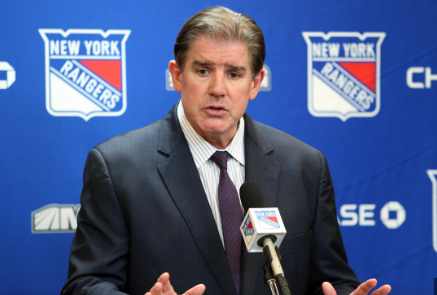
The New York Rangers recently made a strategic move by signing restricted free agent Braden Schneider to a two-year contract worth $4.4 million. This contract, often referred to as a “bridge deal,” aligns with the Rangers’ recent pattern of offering short-term contracts to their young players who have completed their entry-level deals. The purpose of this strategy is to maintain flexibility with the salary cap, which is crucial for managing the team’s financial future while retaining key talent.
Schneider’s new deal, which comes with a reasonable average annual value (AAV) of $2.2 million, is particularly important for the Rangers as they look to balance their roster and financial commitments. While this short-term approach provides a cost-effective way to keep Schneider, a valuable young defenseman, there is some risk involved. If Schneider continues to develop and perform well over the next two years,

he could be in a stronger bargaining position when it’s time to negotiate his next contract, potentially requiring a much larger investment from the Rangers. However, at present, this deal is seen as a positive move for both Schneider and the Rangers, allowing the team to retain an important defensive player without overextending their budget.
In addition to securing Schneider, the Rangers also re-signed Chad Ruhwedel, who is projected to serve as the seventh defenseman on the roster, to a one-year contract valued at $775,000. With these two signings, the Rangers now have approximately $5.9 million in remaining cap space and only one roster spot left to fill. This final spot is likely to go to their last remaining restricted free agent, defenseman Ryan Lindgren.
Negotiations with Lindgren appear to be focused primarily on the length of his contract. According to a report from lohud.com, part of the USA TODAY Network, the Rangers are wary of committing to a long-term deal. While Lindgren’s AAV is expected to be around his $3.6 million qualifying offer, there is a possibility it could go as high as $4 million. The Rangers are keen to avoid overcommitting on the contract length, preferring to keep their options open and maintain flexibility under the salary cap.
Overall, the Rangers’ recent signings reflect a careful balancing act between retaining promising young talent and preparing for future financial challenges. By securing Schneider and Ruhwedel at manageable costs, the Rangers have positioned themselves well to navigate the complexities of the upcoming season and the potentially costly negotiations that lie ahead.
This approach underscores the importance of maintaining financial flexibility in a league where the salary cap plays a critical role in shaping team strategies and long-term planning. The team’s ability to manage these dynamics effectively will be crucial to their continued success and competitiveness in the years to come.
Leave a Reply